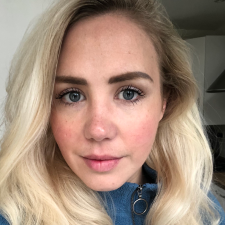As part of our ongoing Women In Games series, we spoke to Janneke Van Swetselaar, head of partnerships at Ultra. In additon to discussing her work at Ultra, an entertainment platform which bridges web2 and web3, utilising blockchain tech while eliminating the pain points and steep learning curve, she spoke about her experience as a woman in the industry and her own journey into the wider world of gaming.
PocketGamer.biz: Tell us a little bit about yourself and your current role?
Janneke Van Swetselaar: My name is Janneke, and I’m Head of Partnerships at Ultra. I’ve worked in gaming for a little over a decade now and am originally from the Netherlands, but have lived in the UK for the past nine-ish years.
My role at Ultra is very broad. I work with game devs (both web3 and web2), brands, web3 companies, blockchains, and NFT projects. I focus on bringing the best content to our users and making sure our partners can make use of everything Ultra has to offer, from our technology and game distribution store, to our NFT marketplace and tournament platform.
Besides that, I have to comment a lot on pictures in the internal ‘pet’ slack channel, so that also keeps me busy.
What first attracted you to the gaming industry?
I accidentally stumbled into gaming when I was studying in France. I wanted to intern at an international company and found a fun placement in Paris at AppTurbo (a mobile ‘app of the day’ company). After my internship finished, I was lucky enough that they offered me a job, so that is how I got started.
What attracted me the most was the industry itself; it is very informal, it moves quickly, and people tend to be creative, passionate and come up with new ideas all the time. It’s also a mix of all sorts of nationalities and personalities. Things can change completely from one year to the next, so you keep on learning, and it’s never boring.
What effect do you think the culture within which you grew up has had an influence on your career path?
Probably a lot. I think the way I grew up encouraged me to explore options and take some risks. There was a bit of a safety net when I was younger, in case I would fail miserably, but I was also told to try things on my own and work hard if I wanted to achieve something.
I also had a decent amount of exposure to other countries, from travel but also from other things my parents were involved with. For example, when I was 12 we had an exchange student from Australia live with us for a year. This really helped with my English and wanting to see the world. So when it was time for me to go to uni, I decided to study my degree in English instead of Dutch because it would make future international careers easier, and I guess it did!
What challenges have you had to face during your career - thinking specifically about being a female in the industry?
One of the main challenges was that I had to adjust my messaging in comparison to how my male colleagues would deliver theirs. My male colleagues could give their feedback in quite a direct manner, and would be taken more seriously from the start. If I spoke in the same way it was perceived as ‘bitchy’, so I had to deliver my ideas and feedback in a more positive, bubbly sort of way, while also having to prove myself before being taken seriously.
I have not had a lot of bad experiences, but I think that almost every industry has some bad apples that create uncomfortable situations. Random things like having a meeting at GamesCom and a stranger walking by and just grabbing your ass, I could have done without.
Compared to when I started a little over a decade ago, things have become a lot better, but improvements are still needed.
What advice would you give to companies looking to improve equality within the workplace?
People need to feel comfortable speaking up. HR can be vital here. If the only person you can talk to is your manager, it is not easy to bring up certain things you might want to discuss, especially if your manager might be the issue or if it is something personal you’d rather not share.
Another important thing is overall transparency: salary tier transparency, career progression, an anonymous company survey… You name it. Transparency can really help with avoiding certain biases and flagging potential pain points in an organisation. Having an objective framework that everybody needs to follow or can reference can be a big help – it’s not perfect but it is a great place to start.
And what advice would you give to other women joining the industry?
I would definitely recommend women join the industry; it is such a great place to be in with so many different opportunities.
I’d advise not being too polite or passive if you really want something, or feel like you deserve it. Many studies have shown that women have a harder time speaking up for themselves or asking for things. Think of a raise, involvement in a project or perhaps a change in role. It is fine to ask for these things – come prepared and make your case. In Dutch we say ‘Nee heb je, Ja kun je krijgen’ which roughly translates to ‘You have a no, you can get a yes’.
Who inspires you the most (not necessarily from within games)?
It is not necessarily one person, but more the type of people that see an issue or a limitation in the current structure and therefore decide they will come up with something and do it better. If everybody just stuck with the status quo nothing would ever change.
Some industries have hardly changed over the past decades, while others - thankfully including gaming and tech - are full of trailblazers that come up with new ideas that reshape everything. It is not an easy thing to do. The first people that tread a new path have a much harder time doing so than the people that follow, so I am always in awe of that.
Since you entered the games industry, what is the biggest change you’ve seen and is this for better or worse?
There have been quite a few big changes in the industry since I started. To paint a picture, not everybody had the internet on their phone when I started gaming. Compared to how things are now, there has been a massive shift in game quality and software and hardware capabilities.
Unsurprisingly, I am also very excited about the potential of web3. It opens up a lot of new and creative ways to reward users through ownership. Instead of having a one way stream from developer to user, where there is no true ownership of in-game items, there can be a shift that mutually benefits the game/project and the user. I am sure that in the next few years we will see a lot of really great examples (and trial and error) of how this technology can be utilised.
And lastly, remote and flexible working have become a lot more common due to the pandemic. I have worked remotely for the past eight years and I really love it. I know it is not for everybody, but you would have to drag me to an office; it’s not for me. Offering different ways of working allows for new people from various locations to join the industry, for people to live where they want to live - not just in expensive city centres, and to work flexible hours where they might be able to fit in quick breaks like walking the dog, picking up kids from school or going to the gym.
All of these are for the better and I hope we will see them develop more and more over time.
If you could change one thing about the industry, what would it be and why?
I would change the accountability we put on people, not just by platforms or organisations but also by peers and friends. It’s almost like some people go out of their way to act like complete assholes, especially online, because they know there is no accountability or repercussions in their real life.
It happens to everybody, but of course, especially women, the LGBQT+ community and people of different ethnic backgrounds have to deal with most of the harassment. It has a big impact on people’s ambition and mental health and it diminishes a wider range of representation.
If you could only keep three games on your phone for the rest of time, which would you choose?
I am slightly guilty of being a creature of habit and playing the same things I enjoy over and over again. When I’m travelling or on my way into London, I listen to audiobooks and game in short stints to entertain myself. Zooba from Wildlife Studios is lots of fun. I would also keep Best Fiends from Seriously as I’d hate to give up my progress, and Settlers of Catan, the mobile version, has a nice slow pace, for the long waits.






















